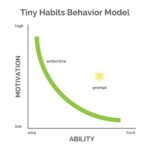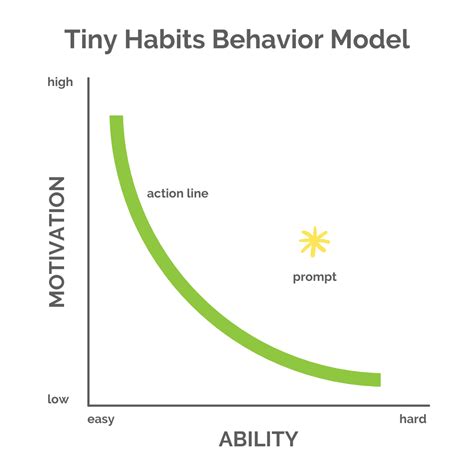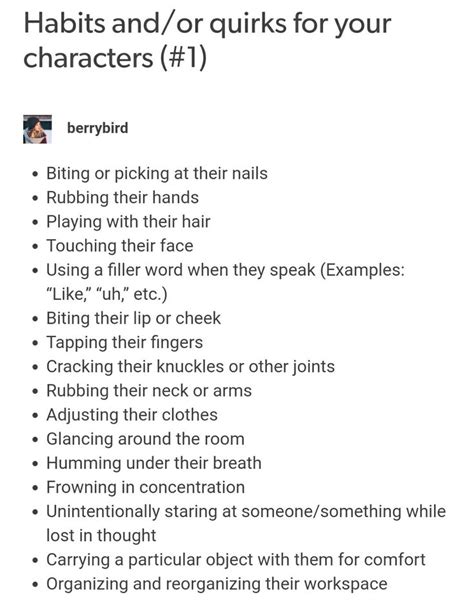
Subtle behaviors, often dismissed as mere quirks, can offer surprisingly revealing insights into an individual’s personality, according to a recent online discussion. From apologizing excessively to needing the volume set on even numbers, these seemingly innocuous habits can signal underlying traits and tendencies, offering a glimpse into the complexities of human character.
A recent online thread explored these “harmless” habits, with users sharing observations and anecdotes about behaviors that inadvertently expose personality nuances. The discussion highlighted how these unconscious actions can serve as indicators of deeper psychological patterns, offering a unique lens through which to understand ourselves and others. The compilation provides a new perspective on the subtle ways personality manifests in everyday life.
One frequently cited habit is the tendency to excessively apologize, even when not at fault. This behavior, according to the discussion, often stems from a deep-seated need for approval and a fear of conflict. “People-pleasing tendencies are often rooted in a fear of disappointing others,” explained one commenter. This constant apologizing can also indicate low self-esteem and a tendency to prioritize others’ needs over one’s own. Another user stated, “I apologize when someone bumps into me.”
The need for even numbers, particularly when adjusting volume settings or other numerical controls, also emerged as a common indicator of underlying personality traits. While the reasons for this preference vary, it often points to a desire for balance, order, and predictability. One participant admitted to always setting the volume to an even number because “odd numbers feel… unsettling.” This preference for even numbers can extend beyond volume controls, manifesting in other areas of life, such as a preference for symmetrical arrangements or a meticulous approach to organization. It is important to note that this is a preference, not a compulsion as seen in OCD.
Another surprising habit that can reveal personality is the way someone handles leftovers. Those who meticulously portion and label leftovers, planning for future meals, often exhibit traits of conscientiousness, organization, and resourcefulness. Conversely, those who haphazardly store leftovers, often forgetting about them until they spoil, may be more impulsive, less organized, or less concerned with long-term planning.
The way individuals organize their belongings, whether it’s a meticulously arranged desk or a chaotic collection of items, can also provide insights into their personality. A tidy and organized space often reflects a desire for control, structure, and efficiency, while a more cluttered environment may indicate creativity, a tolerance for ambiguity, or a tendency to prioritize other aspects of life over organization. However, it is important to note that correlation does not equal causation, and other factors may influence organization habits.
The habit of talking to oneself, often dismissed as eccentricity, can actually be a sign of intelligence and self-awareness. Studies have shown that talking to oneself can improve cognitive function, enhance problem-solving skills, and facilitate self-regulation. As one user put it, “Talking to myself helps me think things through.” It can also be a way to process emotions and gain clarity on complex issues.
Furthermore, the way people react to being interrupted can also be telling. Those who become easily irritated or flustered by interruptions may be highly focused, detail-oriented, and value their concentration. Conversely, those who are more adaptable and unfazed by interruptions may be more flexible, open to new ideas, and comfortable with multitasking. The level of comfort with multitasking is affected by environmental factors, such as deadlines.
The seemingly innocuous habit of biting nails can also reveal underlying anxiety, stress, or insecurity. Nail biting is often a coping mechanism for dealing with uncomfortable emotions or challenging situations. While it is often unconscious, it can be a sign that someone is struggling to manage stress or anxiety in a healthy way. The individual may not even realize that it happens when they are stressed or anxious.
Similarly, fidgeting, whether it’s tapping a foot, twirling hair, or clicking a pen, can be a sign of restlessness, anxiety, or boredom. It can also be a way to release nervous energy or improve focus. Some studies have suggested that fidgeting can actually help improve cognitive performance by increasing blood flow to the brain. For others, it may be a bad habit that they are trying to get rid of.
The way someone makes decisions, whether it’s carefully weighing all options or impulsively choosing the first thing that comes to mind, can also reveal their personality. Deliberate decision-makers tend to be more analytical, cautious, and risk-averse, while impulsive decision-makers may be more adventurous, spontaneous, and open to new experiences.
Another habit discussed was the tendency to overthink or analyze situations excessively. This habit, often linked to anxiety and perfectionism, can lead to indecisiveness, worry, and difficulty enjoying the present moment. Those who tend to overthink may also be highly self-critical and prone to negative self-talk.
The article also touches on the habit of needing to arrive early to appointments or events. This often indicates a strong sense of responsibility, a desire to be prepared, and a fear of being late or inconveniencing others. People who arrive early often value punctuality and respect other people’s time.
On the other hand, chronic lateness can signal a variety of underlying issues, such as poor time management skills, a tendency to procrastinate, or a subconscious desire for attention. It can also be a sign of disorganization, a lack of concern for others’ feelings, or a tendency to prioritize one’s own needs over others.
The way people listen to music can also reveal aspects of their personality. Those who listen to a wide variety of genres may be more open-minded, curious, and adaptable, while those who stick to a narrow range of musical styles may be more conventional, predictable, and resistant to change. The types of music that people prefer, such as classical, hip-hop, or metal, can also provide clues about their emotional states, values, and cultural background.
The habit of interrupting others during conversations can be indicative of impatience, a need to be heard, or a lack of empathy. It can also be a sign of dominance, a desire to control the conversation, or a tendency to prioritize one’s own opinions over others. However, it’s important to consider cultural differences, as interrupting is considered acceptable in some cultures.
The way people respond to compliments can also be revealing. Those who accept compliments gracefully and confidently often have high self-esteem and a positive self-image, while those who deflect or dismiss compliments may struggle with insecurity, self-doubt, or a fear of appearing arrogant.
The habit of constantly checking one’s phone, even when there are no notifications, can be a sign of anxiety, boredom, or a fear of missing out (FOMO). It can also indicate a dependency on technology, a lack of self-control, or a desire to stay constantly connected to social media.
The way people handle criticism can also reveal their personality. Those who accept criticism constructively and use it as an opportunity to learn and grow tend to be more resilient, self-aware, and open to feedback, while those who become defensive, angry, or dismissive of criticism may struggle with insecurity, defensiveness, or a lack of self-awareness.
Finally, the habit of daydreaming, often dismissed as unproductive, can actually be a sign of creativity, imagination, and problem-solving skills. Daydreaming allows the mind to wander and explore new ideas, which can lead to innovative solutions and creative breakthroughs.
These 17 “harmless” habits, while seemingly insignificant, offer a fascinating glimpse into the complexities of human personality. By paying attention to these subtle behaviors, we can gain a deeper understanding of ourselves and others. It is important to note that these habits are not definitive indicators of personality traits, but rather potential clues that can be interpreted in conjunction with other information.
The discussion underscores the intricate ways in which personality manifests in everyday life, often through unconscious habits and behaviors. By recognizing and interpreting these subtle cues, individuals can gain valuable insights into their own character and the personalities of those around them, fostering greater self-awareness and interpersonal understanding. It should be taken into consideration that some habits may be due to underlying mental illnesses, physical ailments, or environmental factors. It is always best to be understanding.
Frequently Asked Questions (FAQ)
-
Are these habits definitive indicators of personality, or are they just potential clues?
These habits should be considered potential clues, not definitive indicators of personality. While they can offer insights into underlying traits and tendencies, they should be interpreted in conjunction with other information and not used as the sole basis for judging someone’s character. “It is important to note that these habits are not definitive indicators of personality traits, but rather potential clues that can be interpreted in conjunction with other information,” as stated in the article. There are also environmental, physical, and mental health factors to consider.
-
Can these habits be influenced by cultural or environmental factors?
Yes, many of these habits can be influenced by cultural or environmental factors. For example, the habit of interrupting others during conversations is considered acceptable in some cultures but rude in others. Similarly, levels of organization can be greatly affected by the availability of resources and the work environment. The factors should be taken into consideration when interpreting these habits.
-
If I recognize some of these habits in myself, does it mean I have a personality flaw or a psychological problem?
Not necessarily. Recognizing these habits in yourself simply means that you exhibit certain tendencies that are common among many people. It does not automatically indicate a personality flaw or a psychological problem. However, if you are concerned about any of these habits or if they are causing you distress, it may be helpful to consult with a mental health professional. Furthermore, some of the habits may be due to underlying mental health issues that an expert may be able to diagnose and treat.
-
Can I change these habits if I want to?
Yes, many of these habits can be changed with conscious effort and practice. For example, if you want to stop biting your nails, you can try using a bitter-tasting nail polish or finding other ways to manage stress and anxiety. Similarly, if you want to become more organized, you can start by setting small, achievable goals and gradually building up to larger tasks. If you have an underlying condition that is causing a habit, you will need to treat that first.
-
How can I use this information to better understand myself and others?
You can use this information to become more self-aware and to develop greater empathy and understanding for others. By paying attention to these subtle behaviors, you can gain insights into your own strengths, weaknesses, and tendencies, as well as the personalities of those around you. This can help you build stronger relationships, communicate more effectively, and navigate social situations with greater ease.
-
What does it mean if someone always apologizes, even when it’s not their fault?
Excessive apologizing often stems from a deep-seated need for approval and a fear of conflict, as noted in the online discussion. It can also indicate low self-esteem and a tendency to prioritize others’ needs over one’s own. The commenter from the article said that “People-pleasing tendencies are often rooted in a fear of disappointing others.” However, it is important to consider any underlying mental health issues that may contribute to it.
-
Why do some people prefer even numbers, especially when adjusting volume?
The preference for even numbers, particularly when adjusting volume settings, often points to a desire for balance, order, and predictability. One participant admitted to always setting the volume to an even number because “odd numbers feel… unsettling.” While the reasons for this preference vary, it can extend beyond volume controls, manifesting in other areas of life, such as a preference for symmetrical arrangements or a meticulous approach to organization.
-
What does the way someone handles leftovers say about their personality?
Those who meticulously portion and label leftovers, planning for future meals, often exhibit traits of conscientiousness, organization, and resourcefulness. Conversely, those who haphazardly store leftovers, often forgetting about them until they spoil, may be more impulsive, less organized, or less concerned with long-term planning. The habit is affected by time constraints and other factors.
-
Is talking to oneself a sign of eccentricity, or could it indicate something else?
Talking to oneself, often dismissed as eccentricity, can actually be a sign of intelligence and self-awareness. Studies have shown that talking to oneself can improve cognitive function, enhance problem-solving skills, and facilitate self-regulation. As one user put it, “Talking to myself helps me think things through.”
-
What does fidgeting, like tapping a foot or twirling hair, signify?
Fidgeting, whether it’s tapping a foot, twirling hair, or clicking a pen, can be a sign of restlessness, anxiety, or boredom. It can also be a way to release nervous energy or improve focus. Some studies have suggested that fidgeting can actually help improve cognitive performance by increasing blood flow to the brain.
-
What underlying traits might someone exhibit if they frequently interrupt others?
The habit of interrupting others during conversations can be indicative of impatience, a need to be heard, or a lack of empathy. It can also be a sign of dominance, a desire to control the conversation, or a tendency to prioritize one’s own opinions over others.
-
What does it mean if someone is always early to appointments or consistently late?
Needing to arrive early to appointments or events often indicates a strong sense of responsibility, a desire to be prepared, and a fear of being late or inconveniencing others. On the other hand, chronic lateness can signal a variety of underlying issues, such as poor time management skills, a tendency to procrastinate, or a subconscious desire for attention.
-
How does the way someone listens to music reflect their personality?
Those who listen to a wide variety of genres may be more open-minded, curious, and adaptable, while those who stick to a narrow range of musical styles may be more conventional, predictable, and resistant to change. The types of music that people prefer, such as classical, hip-hop, or metal, can also provide clues about their emotional states, values, and cultural background.
-
What does it mean if someone is constantly checking their phone, even without notifications?
The habit of constantly checking one’s phone, even when there are no notifications, can be a sign of anxiety, boredom, or a fear of missing out (FOMO). It can also indicate a dependency on technology, a lack of self-control, or a desire to stay constantly connected to social media.
-
How does the way someone responds to compliments reveal their personality?
Those who accept compliments gracefully and confidently often have high self-esteem and a positive self-image, while those who deflect or dismiss compliments may struggle with insecurity, self-doubt, or a fear of appearing arrogant.
-
What does the habit of daydreaming indicate about a person’s personality?
The habit of daydreaming, often dismissed as unproductive, can actually be a sign of creativity, imagination, and problem-solving skills. Daydreaming allows the mind to wander and explore new ideas, which can lead to innovative solutions and creative breakthroughs.
-
How can an understanding of these habits lead to better relationships?
By recognizing and interpreting these subtle cues, individuals can gain valuable insights into their own character and the personalities of those around them, fostering greater self-awareness and interpersonal understanding. This can lead to stronger relationships, more effective communication, and a greater capacity for empathy.
-
Is it possible to misinterpret these habits, and if so, how can misinterpretations be avoided?
Yes, it is possible to misinterpret these habits. Misinterpretations can be avoided by considering the context in which the habits occur, being mindful of cultural differences, and avoiding making assumptions based on limited information. It is also helpful to be aware of one’s own biases and to be open to alternative explanations.
-
Are there any scientific studies that support the link between these habits and personality traits?
While the specific habits mentioned in the article may not have been extensively studied in isolation, there is a body of research in psychology that supports the link between certain behaviors and personality traits. For example, studies have shown that conscientiousness is associated with organization and planning, while neuroticism is associated with anxiety and worry. The article should be viewed more as observations that are not set in stone.
-
Can these habits be used to manipulate or exploit others?
While understanding these habits can provide insights into others’ personalities, it is important to use this knowledge ethically and responsibly. Attempting to manipulate or exploit others based on their habits is unethical and can have negative consequences. The goal should be to use this knowledge to build stronger relationships and foster greater understanding.
![Nostalgia is Served: [Restaurant Name] Returns After 30 Years!](https://kilaupesona.com/wp-content/uploads/2025/06/unnamed-file-281-150x150.jpg)








